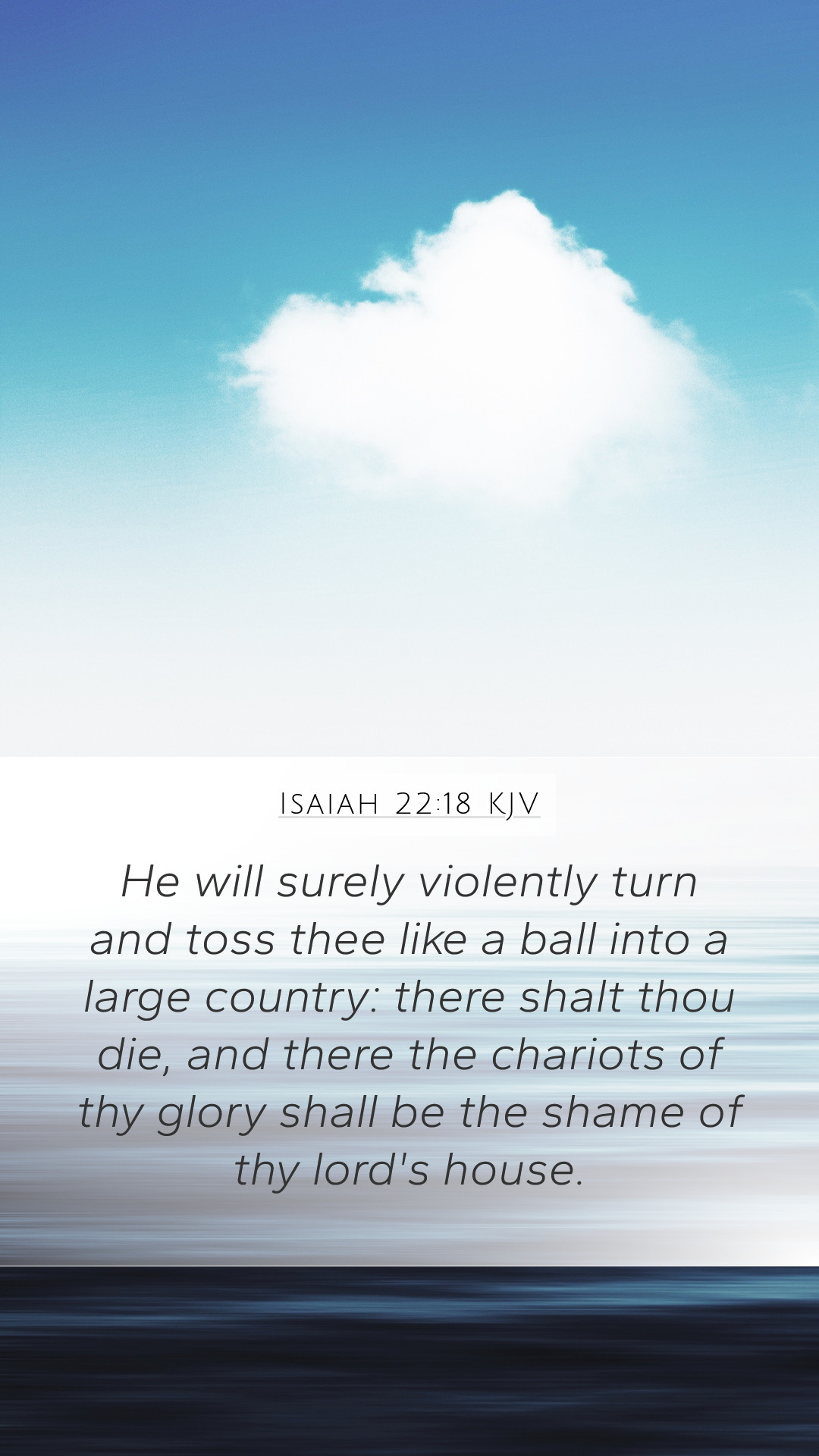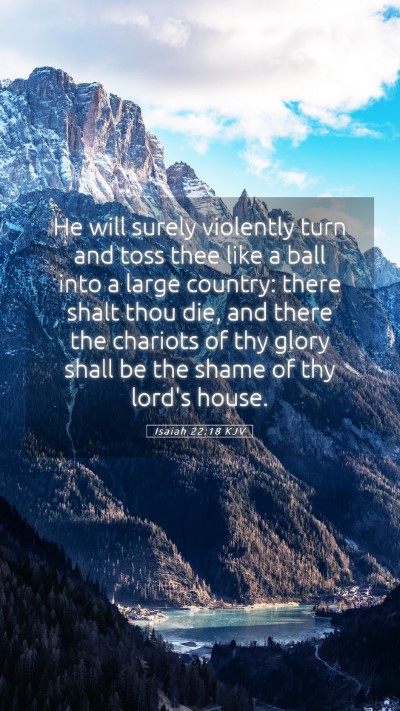Understanding Isaiah 22:18
Verse: Isaiah 22:18 - "He will surely violently turn and toss thee like a ball into a large country: there shalt thou die, and there the chariots of thy glory shall be the shame of thy lord's house."
Overview of the Verse
The context of Isaiah 22:18 discusses the impending judgment upon Shebna, the steward of the king. This verse serves as a solemn warning regarding pride and the consequences of turning away from God's guidance.
Commentary Insights
-
Matthew Henry:
Henry emphasizes that God's judgment is inevitable for unfaithful leaders. The metaphor of being tossed like a ball illustrates the lack of control one has when faced with divine justice. Shebna's arrogance leads to his downfall, highlighting the importance of humility and faithfulness in positions of authority.
-
Albert Barnes:
Barnes notes that the imagery of being hurled into a 'large country' indicates exile and loss of status. This reflects a consequence of not adhering to God’s commandments and covenants. The passage serves as a dire warning about the fragility of earthly power compared to divine authority.
-
Adam Clarke:
Clarke explains that the 'chariots of glory' represent the outward appearances of wealth and power, which ultimately lead to shame in the eyes of God when misused. His exposition reveals the heart of the message: true glory is found in obedience to God rather than in human achievements.
Key Themes
Isaiah 22:18 explores several key themes essential for understanding Scripture:
- Judgment and Accountability: The verse reinforces the idea that leaders are accountable for their actions and decisions under God's sovereignty.
- Divine Authority versus Human Power: It illustrates the contrast between God's eternal authority and the temporary nature of human glory.
- Consequences of Arrogance: The fall of Shebna serves as a powerful reminder of the risks associated with pride and self-reliance.
Bible Study Insights
For those engaging in Bible study groups or online Bible study, Isaiah 22:18 provides ample material for discussion. The historical context reveals insights into ancient Israel's political landscape, while the application urges followers to reflect on their own leaders—spiritual and secular alike—and the qualities of humility and faithfulness.
Application to Daily Life
When examining this verse for personal application, consider the following:
- Reflect on the areas of pride in your life. How might God be urging you toward humility?
- Contemplate how earthly status can distract from your relationship with God and lead to spiritual complacency.
- Encourage leaders in your community or church to seek God’s guidance and to remain accountable for their actions.
Cross References
Isaiah 22:18 relates closely to several other scripture passages:
- Proverbs 16:18: "Pride goes before destruction, and a haughty spirit before a fall."
- James 4:10: "Humble yourselves before the Lord, and he will lift you up."
- Matthew 23:12: "For those who exalt themselves will be humbled, and those who humble themselves will be exalted."
Conclusion
In conclusion, Isaiah 22:18 serves as a poignant reminder of the themes of judgment, accountability, and the peril of pride. Through careful analysis and reflection upon this verse, believers can glean valuable lessons applicable to their own lives, understanding the depth of Scripture and its relevance today.
Further Study Resources
For those interested in diving deeper into Bible study, consider using Bible study tools and resources that examine:
- Historical context of Bible verses
- In-depth Bible verse analysis
- Commentary series such as those by Henry, Barnes, and Clarke


